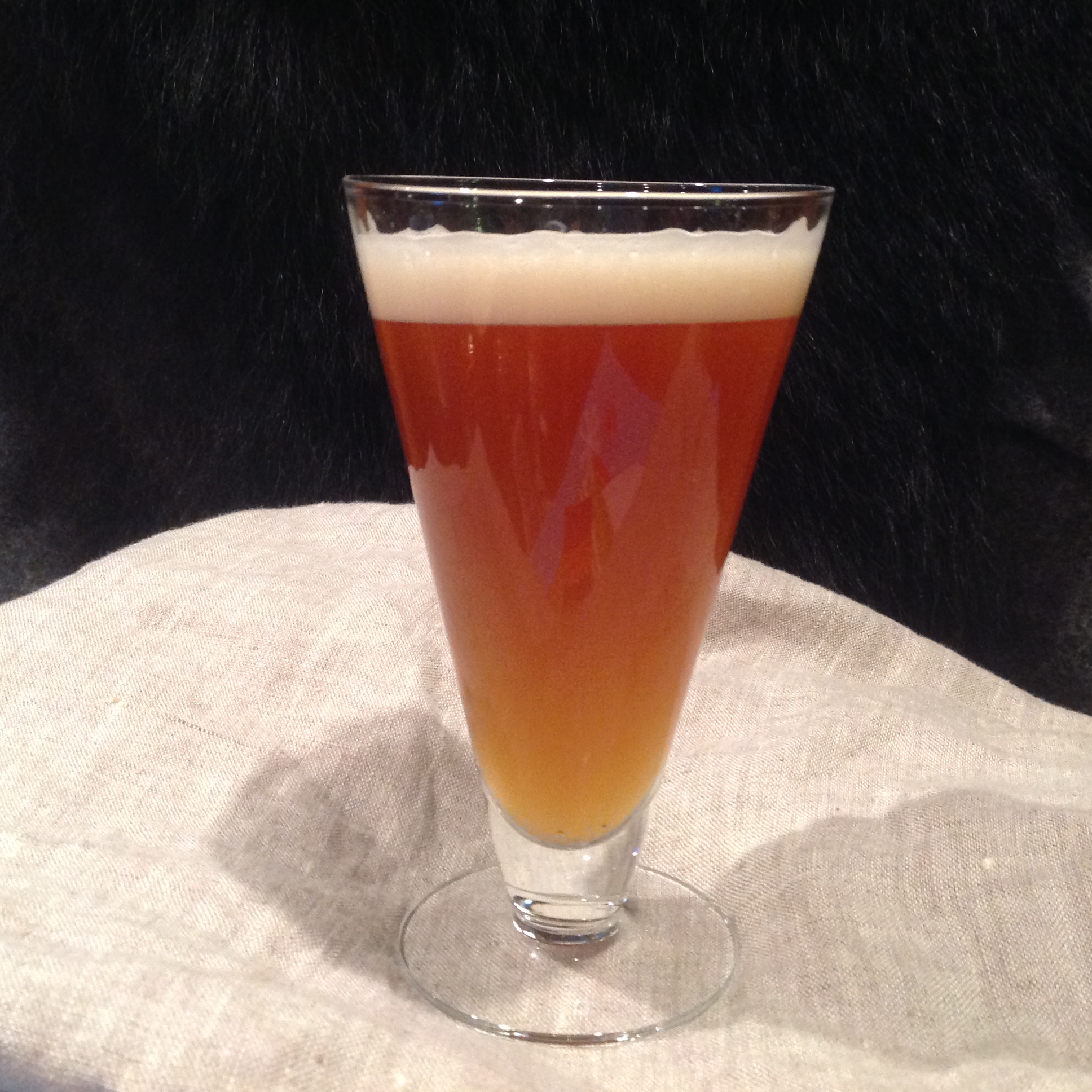





As many of my friends know, I have been dabbling in vintning and brewing for a number of years. I have played with all sorts of wines, meads, ales, and even a lager. Some of these have been historical, but nothing has inspired me to blog about it. Well, I have found inspiration (which is may seem fitting when you read further). I recently finished my first attempt at a braggot using my own creation of a recipe.
Braggot is quite an ancient drink that dates back to the Dark Ages.** One of the most mentioned references to braggot (from the 14th century, later in the Middle Ages) comes from Chaucer’s Canterbury Tales.*** Braggot may have historically been a blend of spices and herbs with mead and beer to make a very strong beverage. Other historians and brewers believe it is mead made with grains and hops, or even an “ale” made with more honey than malted grain. In all cases, braggot is a hybrid of mead and ale. For my braggot, I chose to stick to an ale with over 50% honey for fermentables and highly influenced by the historic drink. I was also thinking greatly of the mead halls of old Norse and Germanic myth.
In Norse mythology, the Mead of Poetry is a mythical beverage that whoever drinks becomes a skald or scholar, able to recite any information and solve any question. Mead (and perhaps braggot as well) is a “vivid metaphor for poetic inspiration.” It was given by Odin to the gods and to the men gifted in poetry.
The braggot I have made is 1/3 malted wheat, 2/3 honey (from a friend’s hives), German hops, and it was fermented with a Belgian Abbey yeast. I also fermented it with a pound of fresh cranberries. The ABV was never measured but I would guess it to be well over 11%.
* Bragi is the Norse god of poetry and skalds (bards). He is described in the Skáldskaparmál as the first maker of poetry, the long-bearded god (after his name, a man who has a great beard is called Beard-Bragi), and son of Odin.
** During an archaeological excavation, a birch bark vessel was found buried with a women at Egtved in the Jutland region of Denmark (over 3,000 years old). The chemical analysis of the vessel showed that it contained a fermented beverage made with honey, wheat, cranberries, and bog myrtle (for hops).
*** From “The Miller’s Tale”
“Hir mouth was sweete as bragot or the meeth,
Or hoord of apples leyd in hey or heeth.”
(“Her mouth was sweet as bragget or as mead
Or hoard of apples laid in hay or weed.”)
Leave a Reply